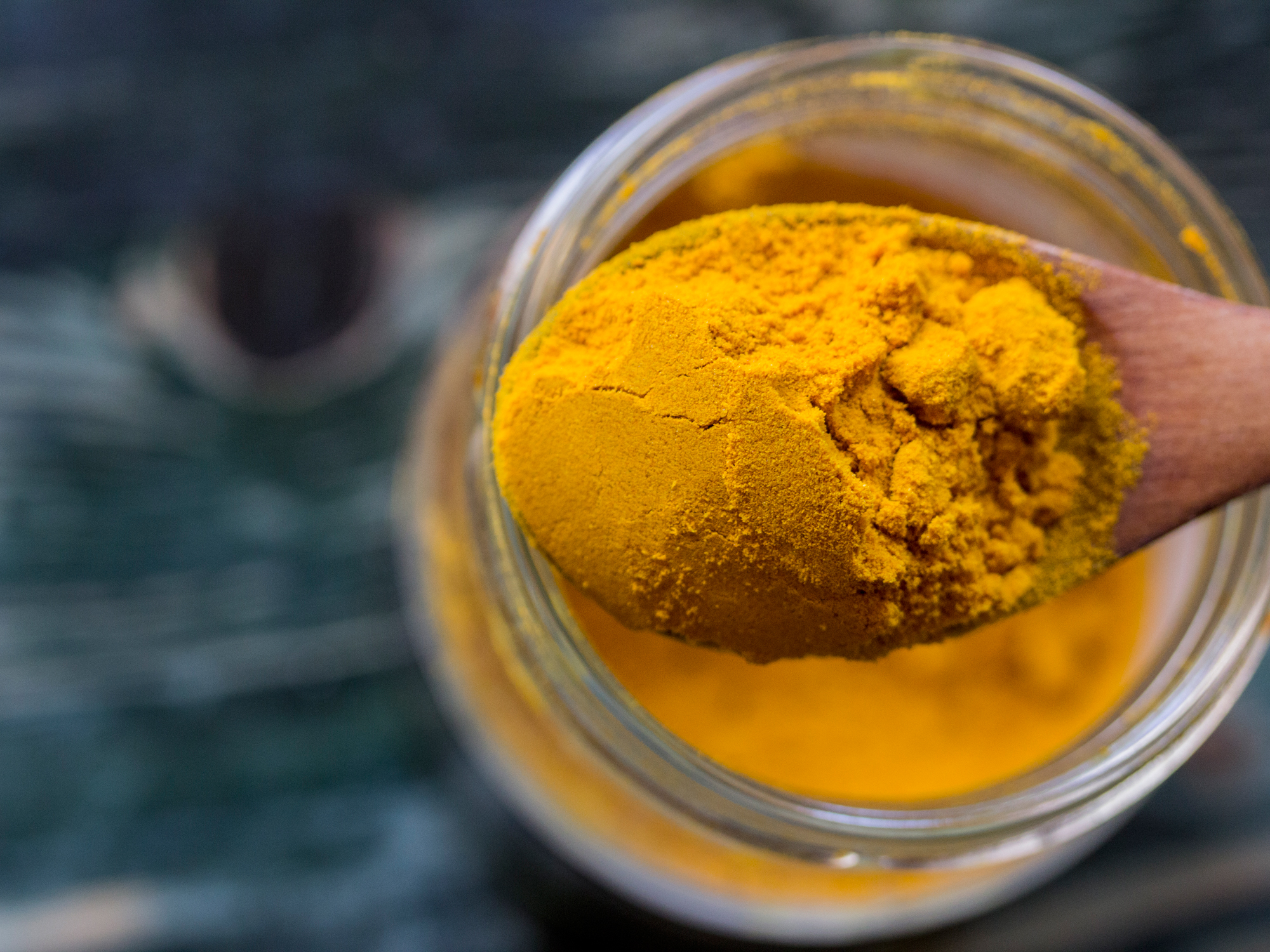Get Easy Health Digest™ in your inbox and don’t miss a thing when you subscribe today. Plus, get the free bonus report, Mother Nature’s Tips, Tricks and Remedies for Cholesterol, Blood Pressure & Blood Sugar as my way of saying welcome to the community!
The greatest spice for men’s health

I eat or drink turmeric in some form every day — on my oats, in my smoothies, in my tea, on my eggs, and in my curries: basically, I sprinkle it on nearly everything I eat.
Why do I like it so much? Turmeric, and its well-known active ingredient curcumin, has potent antioxidant and anti-inflammatory properties and has been studied for a wide variety of healing properties — most of which greatly benefit men’s health. Here are a few of them:
Turmeric reduces inflammation
Both acute and chronic inflammation are the cause of many health problems — one of the most common of which is arthritis and associated joint pain – two ailments I want to avoid as I age.
Curcumin extracts have been shown to reduce the pain and improve function in knee osteoarthritis “with an efficiency equivalent to ibuprofen, but with fewer gastrointestinal side effects.” Combining curcumin and Boswellia serrata also has been shown to be more effective than the COX-2 inhibitor celecoxib in the treatment of osteoarthritis.
Turmeric helps men with their prostate health
Turmeric is also one of the best natural remedies for relieving the symptoms of an enlarged prostate and helping to reduce urinary symptoms in men as they age. This spice has been shown to provide several important benefits for prostate health, including reducing prostate size, fighting inflammation associated with prostatitis, and helping to manage pelvic pain. Turmeric also could have a role in preventing prostate cancer.
For example, a 2016 study explored the actions and effectiveness of turmeric against prostate cancer. A more recent study reported that curcumin nanoparticles (nanocurcumin) have powerful anticancer activities and could be used against prostate cancer cells.
It aids memory
Animal studies have shown that turmeric has a direct impact on factors involved in memory. One mouse study showed that treatment with turmeric improved both memory and learning in mice under stress. Specifically, the herb increased the expression of certain cholinergic muscarinic receptors associated with memory and learning.
Turmeric can help in reducing depression
A number of studies have found that turmeric/curcumin is effective in reducing depression, especially mild cases. One study noted that patients with major depressive disorder who took curcumin fared just as well as their peers who took Prozac (fluoxetine). A more recent meta-analysis of six clinical trials reported that curcumin “appears to be safe, well-tolerated, and efficacious among depressed patients.”
Helps with diabetes
Curcumin has been shown to improve glucose tolerance in animal research as well as significantly lower hemoglobin A1c in patients with type 2 diabetes. In fact, nanoparticle curcumin has been shown to significantly lower fasting blood glucose, total glucose, and low-density lipoprotein (LDL) cholesterol as well when compared with pre-treatment values.
Curcumin has potent antioxidants
Free-radical fighting antioxidants called curcuminoids are abundant in turmeric. Curcumin is the most prominent of these polyphenols. In addition to helping destroy disease-causing free radicals, curcuminoids also facilitate the activity of antioxidant enzymes (e.g., catalase, superoxide dismutase). Antioxidants can help slow the aging process, protect against chronic disease (including cancer and heart disease), reduce oxidative stress, and fighting inflammation.
How to get more turmeric
You can add turmeric to salads, tea, smoothies, and many other dishes.
Turmeric supplements are also another way to boost your intake. Because curcumin is poorly absorbed by the bloodstream, you need to take turmeric with a black pepper extract which aids in absorption.
Sources:
-
Adahoun MA et al. Enhanced anti-cancer and antimicrobial activities of curcumin nanoparticles. Artificial Cells, Nanomedicine, and Biotechnology 2017 Feb; 45(1): 98-107
-
Dragos D et al. Phytomedicine in joint disorders. Nutrients 2017 Jan; 9(1): 70.
-
Jordan BC et al. Molecular mechanisms of curcumin and its semisynthetic analogues in prostate cancer prevention and treatment. Life Sciences 2016 May 1; 152:135-44
-
Kato M et al. Curcumin improves glucose tolerance via stimulation of glucagon-like peptide-1 secretion. Molecular Nutrition & Food Research 2017 Mar; 61(3).
-
Khalid A et al. Pharmacological effects of turmeric on learning, memory and expression of muscarinic receptor genes (M1, M3 and M5) in stress-induced mouse model. Current Drug Targets 2017 Mar 15
-
Kizhakkedath R. Clinical evaluation of a formulation containing Curcuma longa and Boswellia serrata extracts in the management of knee osteoarthritis. Molecular Medicine Reports 2013 Nov; 8(5): 1542-48
-
Ng QX et al. Clinical use of curcumin in depression: a meta-analysis. Journal of the American Medical Directors Association 2017 Feb 21
-
Rahimi HR et al. The effect of nano-curcumin on HbA1c, fasting blood glucose, and lipid profile in diabetic subjects: a randomized clinical trial. Avicenna Journal of Phytomedicine 2016 Sep-Oct; 6(5): 567-77
-
Sanmukhani J, et al. Efficacy and safety of curcumin in major depressive disorder: A randomized controlled trial. Phytotherapy Research 2013; [Epub ahead of print].












